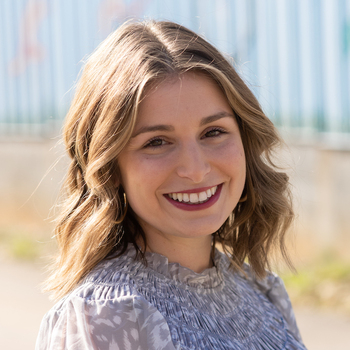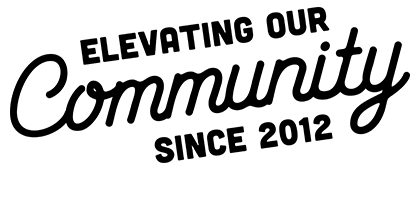A-LINErs love to travel, and if we can travel with a mission, that’s even better! We caught up with fellow A-LINEr Claiborne Linvill, who’s on a medical mission trip in Haiti, to learn more about her experience there. She’s also chronicling her travels on her blog.
1. What's the purpose of your trip?
I’m going with a group to provide medical care to remote villages in the Central Plateau. We’ll be based in Cange, Haiti, a city that for decades has been supported by Episcopalians in the Upstate of South Carolina, Clemson University (mainly its engineering program), and the nonprofit Partners in Health.
Due to these groups’ years of funding, building and support efforts, Cange has a school, a church, a working water system, and a quality hospital, but many of the neighboring rural villages don’t have access to regular health care.
2. What will your day-to-day look like?
Each day, we’ll hike 1-3 hours from Cange to these small villages to set up a pop-up health clinic. The main focus of this trip is hypertension care, as high blood pressure is a highly prevalent yet very treatable condition in that region.
I have zero medical training, so I’m not a part of the “truly important” team. In order to be useful during the day, I’ll be running the pharmacy (passing out medications as instructed by the doctors). I’ll also just be on hand to help wherever a specialist is not needed.
But the main reason I’m being allowed to tag along is to take pictures and write stories so that we can tell others about the work being done there. We need more funds and more interest in this project.
Even though I’ve attended my church, Holy Trinity Clemson, and raised my family in Clemson for over a decade, I didn’t really know much about the work we did in Haiti, so I’m hoping my story will help others in Upstate South Carolina understand our area’s ties to this part of the world and the good but hard work people are doing there.
Also, selfishly, I'm enjoying this unusual opportunity to turn off my cell phone, check out of the digital world, and work entirely with my hands while helping other people. I'll be starting and ending each day with a long hike, and I'll be surrounded by interesting people. There is certainly a vacation aspect to this, even if it will be challenging work.
3. What would you like to learn and share with others?
I admit that I didn’t know much about Haiti before agreeing to go on this trip, and what I did know was rather negative. I’m excited to be surprised.
I’m eager to hear stories from Haitians about their lives, their challenges and their plans. I’m excited to learn what the people of Haiti are doing to improve their fellow Haitians’ lives.
I want to share the stories of Haitians, of local medical workers, of students, and of volunteers so that we can all connect with these people in need and learn more about another culture – especially a country so close to the U.S. and with so many economic and social ties.
Haiti has a complicated relationship with the U.S., in which our country and other Western powers did some really bad things to hold down the country and its people. I believe we now have an obligation to help rebuild and support Haiti. I want to learn about how the efforts, money and volunteers of South Carolina are making strides to improve this relationship.
In today’s politically charged climate, I want to tell stories that will help remind us that we’re all human and we all have our own stories to tell.
The best result of this trip would be if more people volunteered to go work in Haiti (especially medical personnel) and more money was sent to support their efforts. To send a donation to help the medical teams or university students who volunteer there, visit Holy Trinity Clemson’s donation page.

 Meredith Lindsey
Meredith Lindsey